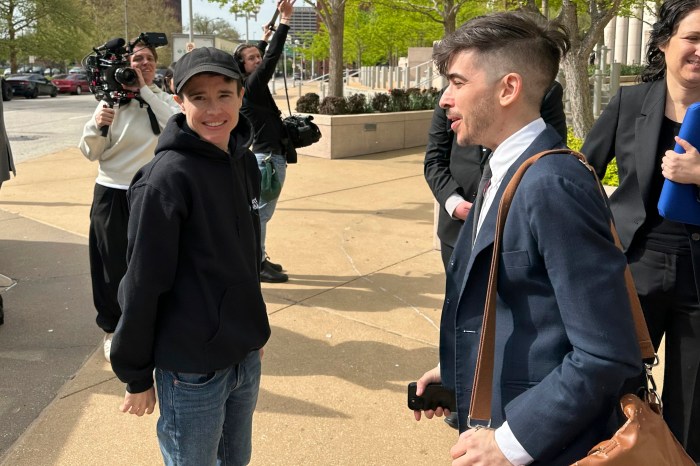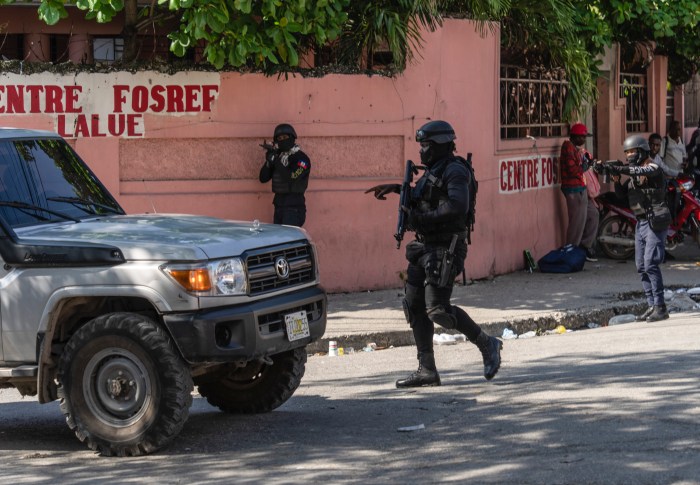BY ARTHUR S. LEONARD | A panel of the US Court of Appeals for the 3rd Circuit, based in Philadelphia, has rejected a petition from a Mongolian lesbian asylum-seeker asking that the Board of Immigration Appeals decision to uphold a ruling that she is not a credible claimant be reviewed.
In an unpublished July 2 decision, the court found that discrepancies between the woman's written application and her hearing testimony and the lack of specific substantiating evidence for her story meant that Immigration Judge Miriam K. Mills had a sufficient record on which to base her original determination in the case.
Appeals court won't review immigration panel's no-credibility finding.
According to the court's opinion, the 28-year-old petitioner (who will not be named in this story in deference to the risks she faces if returned home), a citizen of Mongolia, came to the US as a tourist in July 2004, overstayed her visa, and filed for asylum in February 2005, within the statutory time limit. Claiming she had been persecuted in Mongolia for being a lesbian, the woman sought asylum and withholding of removal, an alternative means of staying in the US, as well as relief under the international Convention Against Torture, which provides a third means of escaping deportation.
After the woman filed her petition, the government began removal proceedings against her for overstaying her visa.
In the written application, she claimed that shortly before she left Mongolia, she and her lesbian partner, Chimgee, were falsely arrested on the pretext of prostitution, when in fact their “offense” was that they were lesbians. During their imprisonment, she wrote, both women were beaten and raped, with Chimgee dying from her injuries. The petitioner asserted that if she were returned to Mongolia, the police would “immediately arrest her and place her in prison where she would be beaten to death,” according to the court opinion.
After hearing testimony from the woman, Immigration Judge Mills discredited the story and denied all relief. Mills pointed to a 2005 State Department Country Report on Mongolia indicating that prostitution is legal there, although “public solicitation for prostitution” and “organizing prostitution” are illegal. Mills found that distinction significant, though the court opinion fails to make clear whether the woman is fluent in and testified in English or an interpreter was used. Given the subtle shadings of meaning between prostitution, solicitation for prostitution, and organizing prostitution, the court's failure to address the issue of language fluency seems a significant omission.
During her initial hearing, the government confronted the petitioner with evidence that prostitution is legal in Mongolia and asked how the police could charge her on that basis. “She was unable to provide a plausible explanation,” according to the appeals court, and was also unable to say why the arrest papers, also produced in evidence, stated that she was detained for “risk of recidivism and fugitive evasion” rather than for “prostitution.” The court neglects to speculate about what these obscure phrases might mean. Recidivism suggests prior arrests, but the opinion makes no mention of them nor does it make any argument that the phrase casts any light one way or the other on the petitioner's claim that she and her late partner were arrested on charges involving prostitution.
In this regard, it is well worth noting that for decades after the New York State sodomy law was ruled unconstitutional in 1980, cops on the beat seemed to be unaware of that fact. In 1986, a police union representative testifying against the city gay rights law under consideration claimed erroneously that gay sex was still illegal here. In this newspaper in 2003, Duncan Osborne reported that between 1981 and 2001, after the state's high court threw out the old law, 399 New York residents were arrested on consensual sodomy charges – and a total of 13 defendants were tried under the bad law by the Brooklyn and Queens prosecutors, two of them as late as 1999!
Mills took particular note of two discrepancies between the woman's written testimony and her statements at her hearing. In her petition, she wrote that she was raped and beaten on the fourth day after her arrest, but at trial she testified these events occurred on the night of her arrest. The petitioner's affidavit supporting her application stated that a police inspector had accused her of being a “lesbian pervert” and told her she would be released to a psychiatric hospital if she admitted as much. At the hearing, however, she testified that the police never questioned her about her sexual orientation.
Mills concluded that the documentary evidence the woman presented did not corroborate her story. That evidence included the police report, Chimgee's obituary, medical records showing the petitioner was treated for injuries in April and May 2004, the months just prior to her arrival in the US, a newspaper article discussing discrimination against lesbians in Mongolia, and letters from relatives and a friend, whose contents the court does not bother to discuss, simply describing them as “unauthenticated” without explaining how such authentification might be accomplished.
The court noted that the obituary “was printed in a lighter font than the other newspaper articles on the same page and appeared to have been copied onto the original newspaper,” and found that nothing in the documentation provided demonstrated anything like a pattern or practice of state persecution of lesbians in Mongolia.

































